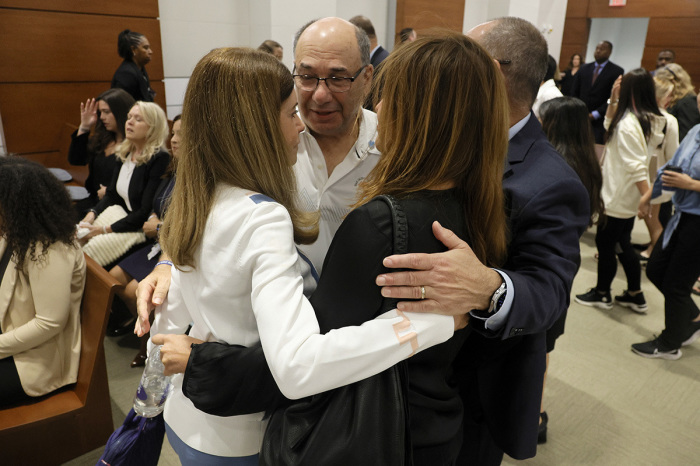Jury rejects death penalty for Parkland mass shooter; recommends life in prison

A jury has rejected a request to give the death penalty to Nikolas Cruz, the now 24-year-old man who entered a high school in Parkland, Florida, in 2018 and murdered 17 people in a mass shooting.
On Feb. 14, 2018, Cruz entered Marjory Stoneman Douglas High School, where he was a former student, and opened fire, killing 14 students and three staff members before he was stopped.
A 12-person jury recommended life in prison without the possibility of parole for Cruz on Thursday, citing factors like Cruz’s documented history of mental health issues.
The sentencing date for Cruz is scheduled for Nov. 1, and will involve a judge issuing a formal sentence. According to Florida law, the judge cannot depart from the jury’s recommendation of life, reported CNN.
Lori Alhadeff, whose 14-year-old daughter, Alyssa Alhadeff, was murdered in the 2018 shooting, expressed disappointment at the jury’s recommendation of life in prison.
“We are beyond disappointed with the outcome today. This should have been the death penalty, one hundred percent. Seventeen people were brutally murdered,” said Aladeff, as quoted by Axios.
"I'm stunned. I'm devastated. There are 17 victims that did not receive justice today," said Fred Guttenberg, the father of 14-year-old shooting victim Jaime Guttenberg, reported Axios.
In 2018, a then 19-year-old Cruz went to the Parkland high school and massacred 17 people, being apprehended by police shortly after and confessing to the mass shooting.
After the mass shooting occurred, claims surfaced that Cruz belonged to a white nationalist militia group known as the Republic of Florida, however, authorities later refuted these claims.
"We are still doing some work but we have no known ties between the ROF, Jordan Jereb or the Broward shooter," said Leon County Sheriff's Office spokesman Lt. Grady Jordan to the Tallahassee Democrat at the time.
Cruz told authorities that “demons” had told him to do the shooting, with evidence indicating that he suffered from Autism and grief over the then-recent death of his adoptive mother.
Later in 2018, a cell phone video was released that Cruz took of himself planning to massacre “at least 20 people with an AR-15 and a couple tracer rounds.”
“Location is Stoneman Douglas in Parkland, Florida. It's going to be a big event. When you see me on the news you'll all know who I am,” said Cruz in the video. “You're all going to die.”
The mass shooting spurred several large-scale demonstrations calling for increased firearms regulations, especially restrictions on rifles that some label as assault weapons. A few Parkland students have since actively campaigned for these initiatives.
The debate over what could be done about violence in schools following the Parkland tragedy also led to the creation of a seven-part article series by The Christian Post titled “Youth, Schools and Violence,” which analyzed the issue from multiple angles.



























